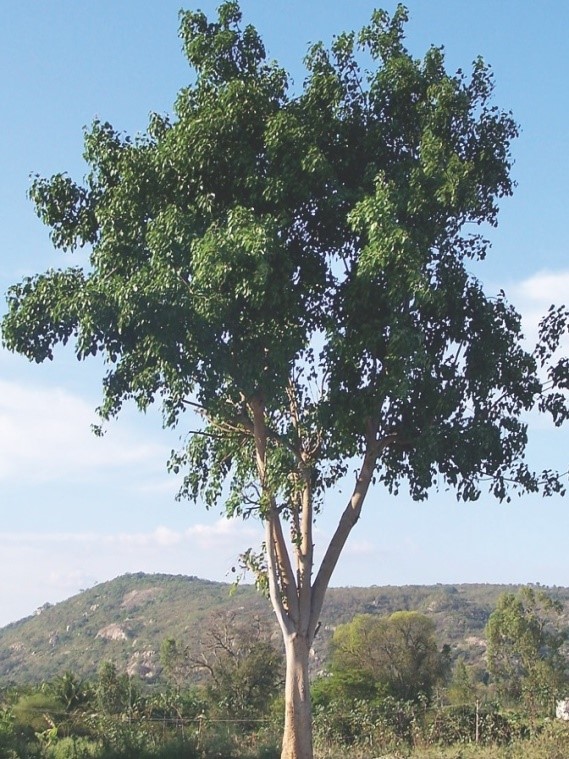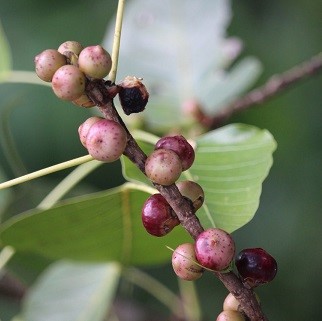Trees
Ficus religiosa Linn.
Ficus religiosa Linn.
Description :
A
large deciduous tree that is leafless or nearly so for a short period during
hot seasons. The leaves are simple, large 10 to 15 cm by 6 to 12 cm and are
broadly ovate, abruptly lanceolate, and shiny on the top side. The bark is grey
and smooth with small irregular scales when old. It flowers in April and May.
The fruit (fig) grows in the axil of the lower leaves and are 1.2 cm in
diameter. Seeds are very small. Fruit matures from October to November. It is
reproduced both from seed and by vegetative means. It will coppice. Seeds are
very small and are sometimes spread in bird droppings. The growth rate of this
tree is fast. Height growth of 1 m/yr has been reported. Spiral grained,
whitish grey sapwood, having medium strength.
Distribution :
The
tree is common in the sub-Himalayas but probably is not native. Throughout the
plains. A very intolerant tree that is cultivated on a large variety of sites
but does best on sandy clay soils. It is adapted to an elevation zone of 0 to
1200 m with a precipitation range of 800 to 1000 mm/yr. It grows well within a
temperature range of 0 to 40°C in a semi-arid, warm, sub-tropical climate.
Uses :
The
tree has value as an avenue tree and is planted along water courses is a good
fodder tree. Because of its fodder and fig potential it could have importance
as a farm forestry tree. Also used for ornamental, fodder, food (figs), small
timber, and medicinal purposes.



